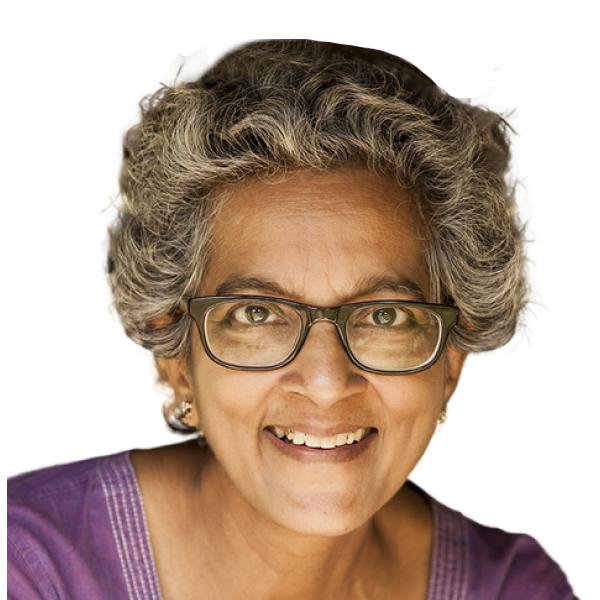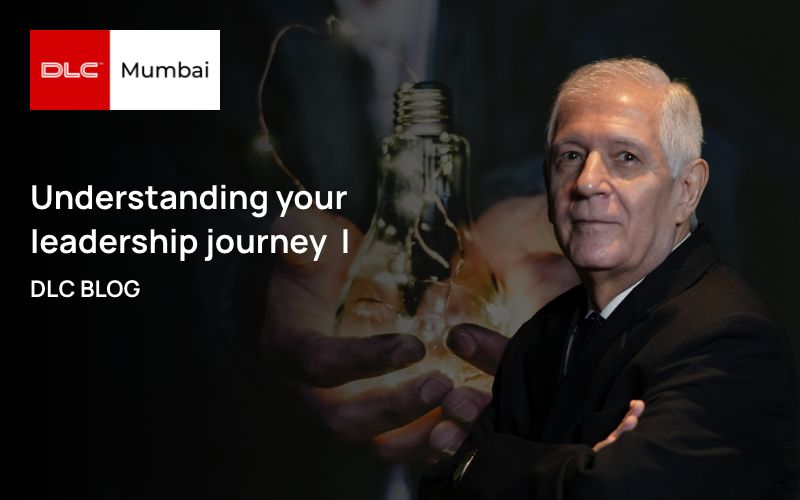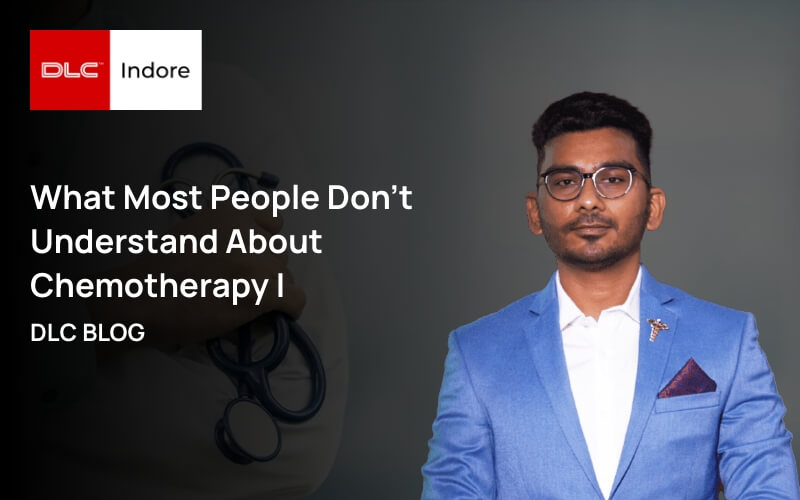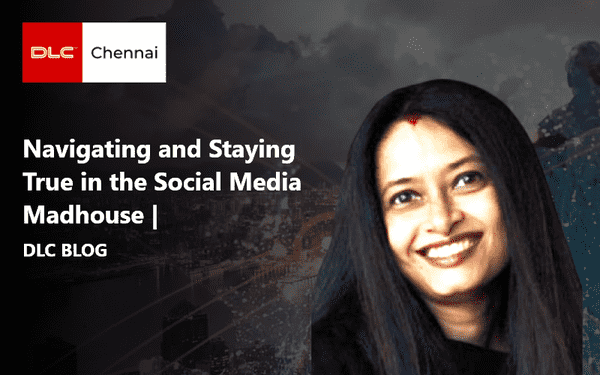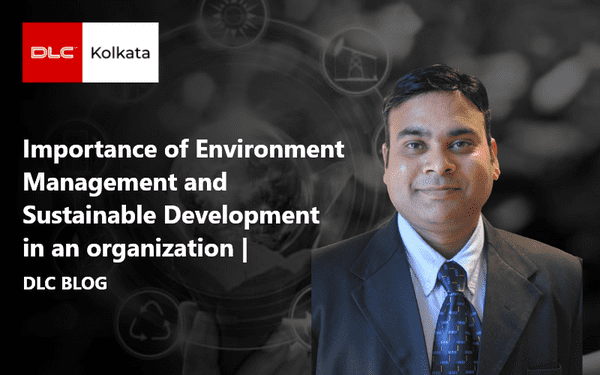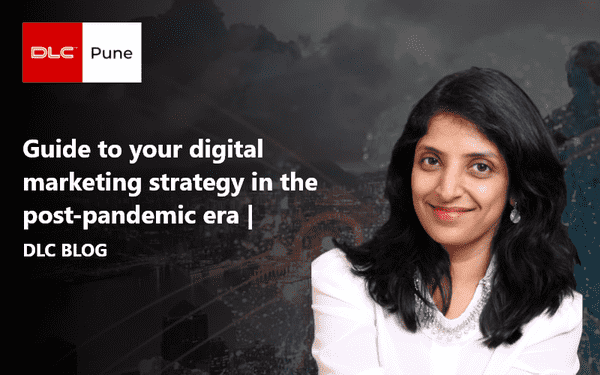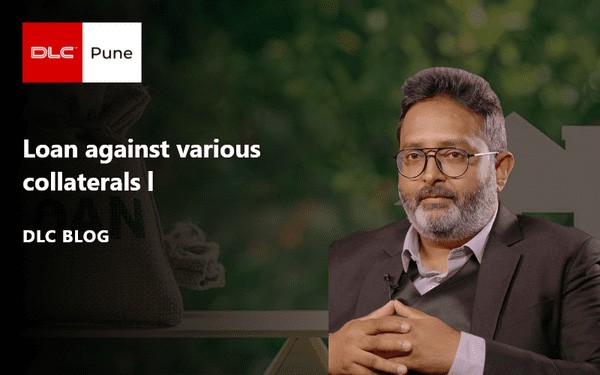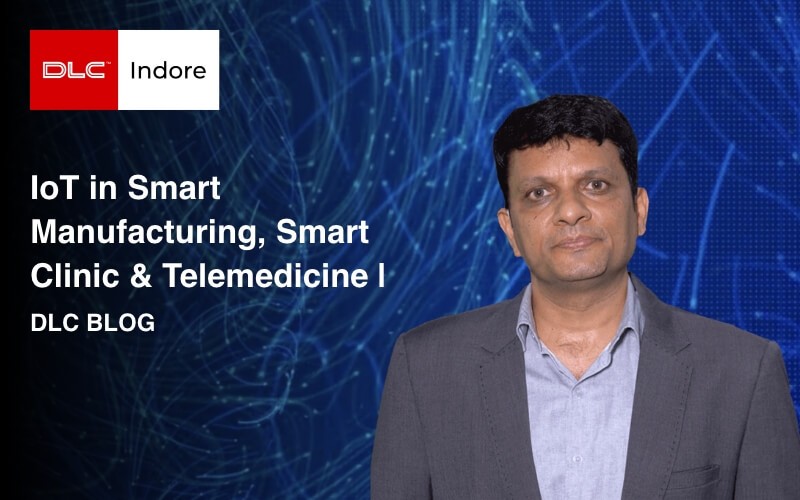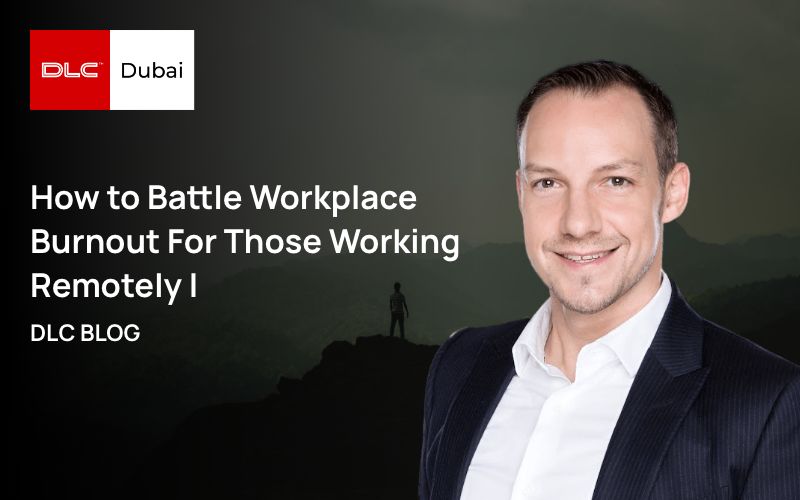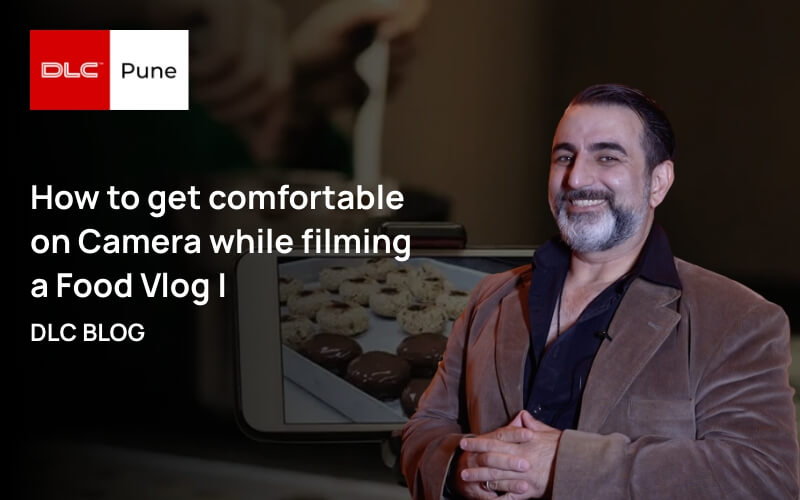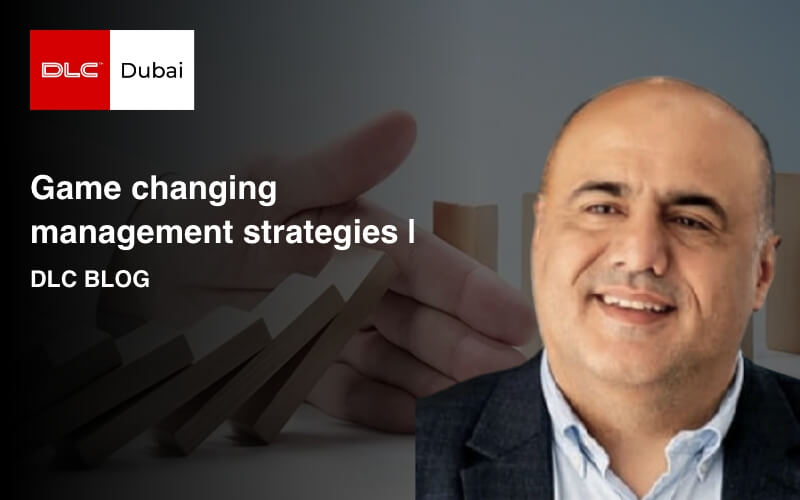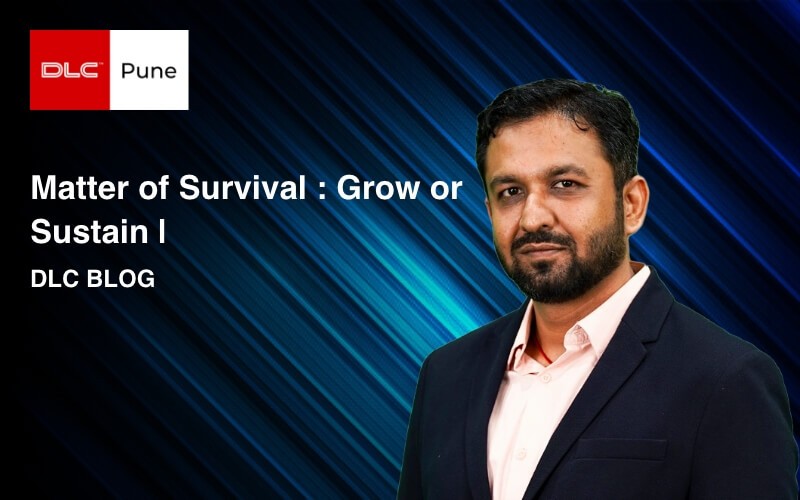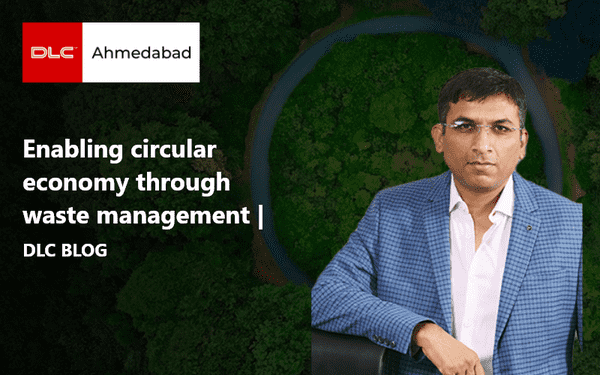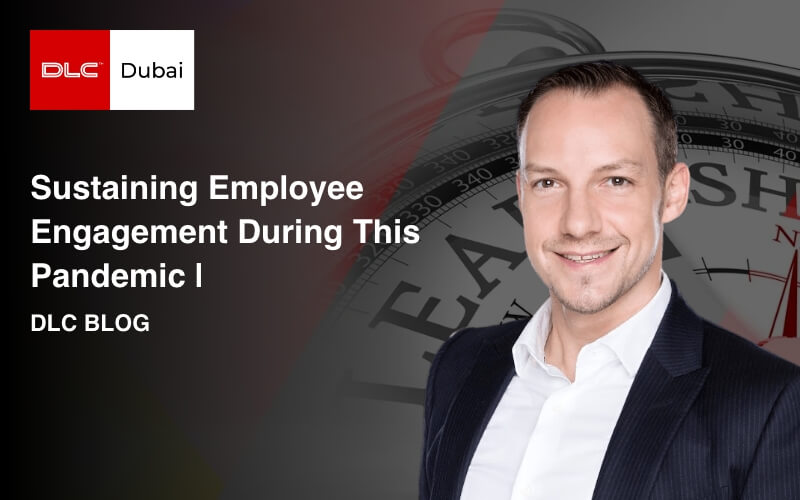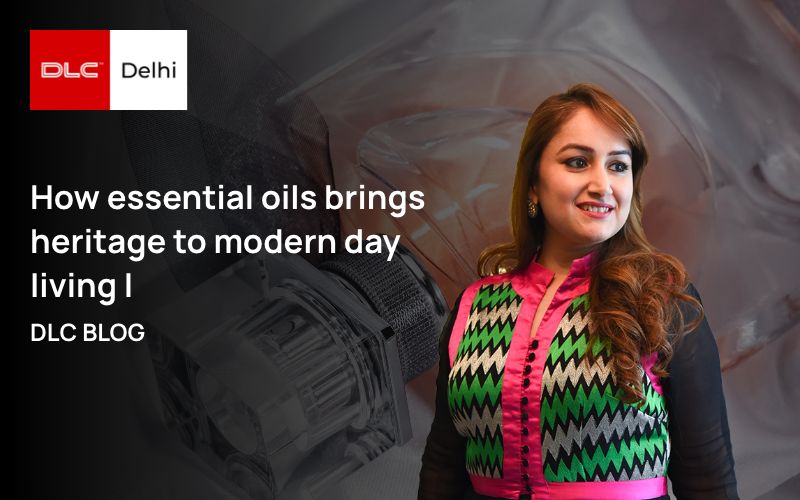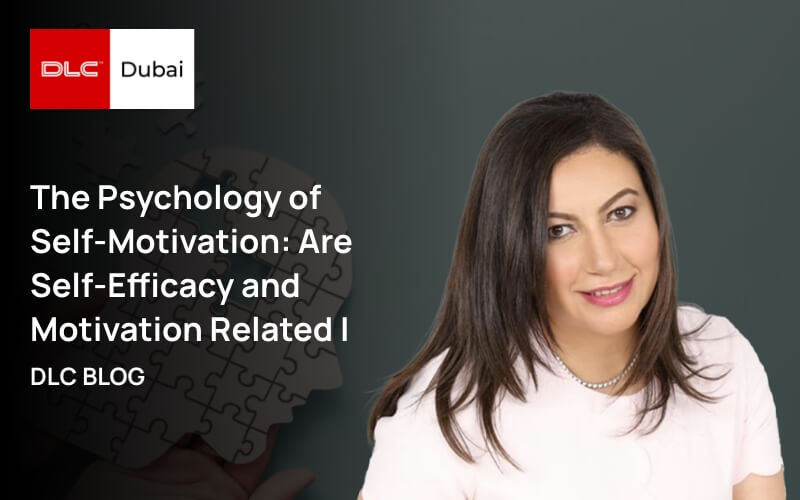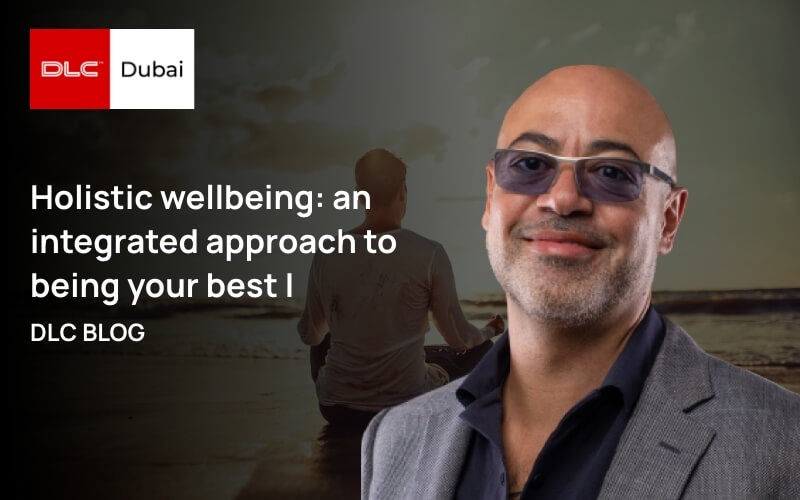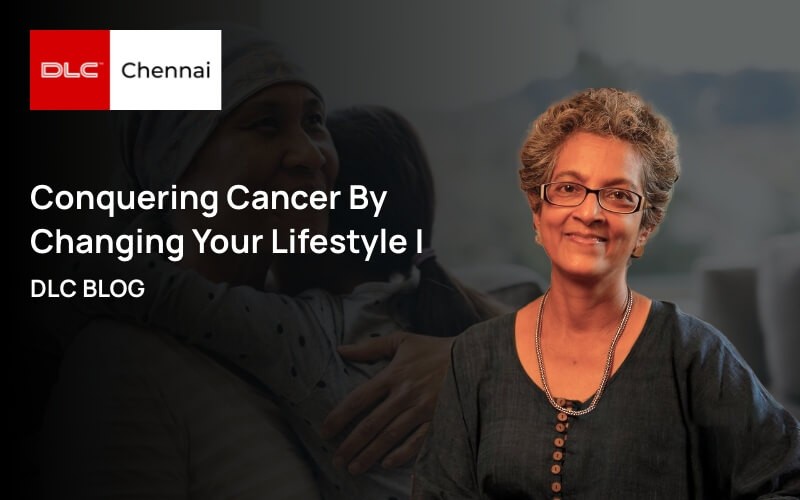
During my college years in the late 1970s, we had sessions at the Tata Memorial Hospital, the only big cancer hospital in India at the time. At that time cancer was relatively uncommon and as medical students, this was never a focus. But all this has changed. Today cancer has become commonplace. While the number of cancer patients continues to rise every year, the age at which people develop cancers is falling. According to the most accurate forecast to date from Cancer Research UK, and published in the British Journal of Cancer, one in two people will develop cancer at some point in their lives.
Nothing is more frightening than the word 'cancer', just because of the pain and suffering involved. Yet most of us prefer not to think about it before it’s too late. This is primarily because we always like to believe that it is something that happens to someone else, not to us. We prefer to live in a state of denial.
Even doctors fear cancer. That’s why they bring out their strongest arsenal against this disease. Radiation and chemotherapy are double-edged swords. Radiation means burning, and everyone knows that radiation or X-rays cause cancer. Chemotherapy is poison. It kills every fast-growing cell and also harms other cells, and so lowers the resistance of the body. Having said this both chemotherapy and radiation can give us time by killing fast-growing cancer cells.
Instead of fearing or living in denial, if we were to bring our awareness to the reasons cancer rates have increased, and try to make sure to get rid of these causes of cancers, we could prevent and even reverse this trend. Though chemotherapy and radiation may bring about remission, continuing the same lifestyle that led to cancer in the first place is likely to bring on a relapse. On the other hand, the diagnosis of cancer can force us to rethink our life and change our path for the better. We must convert adversity into an opportunity to heal at all levels. I know several people who are grateful to their disease for showing them a better path.
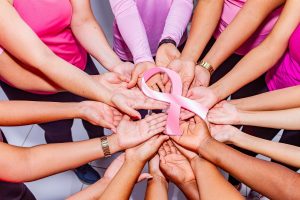 Cut Cancer Out.
Cancer cells, present in everyone's body, are kept in check by healthy cells. But if conditions are unsuitable for the healthy cells – such as less oxygen supply or an acidic environment - they take over and multiply out of control.
It's a myth that you can cut cancer out with surgery. You can only cut out the tumour, which is the result of cancer. Should the conditions for the proliferation of cancer cells continue to exist, a recurrence can occur. Therefore, everyone, whether they have cancer or not, should avoid the factors that cause cancer, some of which are as follows -
1) Excess Proteins – Surprised? Yes, the consumption of more dietary protein than ever before in the history of humanity has resulted in the cancer epidemic. Proteins are foods that our body uses for growth and repair. Excess proteins are acid-yielding in our body – producing the perfect environment for cancer cells to grow. All those eggs and protein supplements that gym trainers advise can work against you. Don’t forget that protein deficiency is very rare. Horses and elephants get enough for their strong bodies only from whole plants!
2) Animal Proteins - Not only are they acid yielding, but, upon cooking animal muscles are converted into heterocyclic amines that are carcinogenic. One good reason to switch to a plant-based diet!
3) Pesticides – Pesticides, used in farming bioaccumulate in the bodies of animals that eat the produce. Naturally, all animal products have way more pesticides than plants ever could. Pesticides consumed over time form residues in our bodies that are highly carcinogenic. Naturally organic plant-based foods are the safest alternatives.
4) Personal care products - such as deodorants, shampoos, soaps, hair dyes, perfumes, lotions, cosmetics, and even toothpaste contain carcinogens. Sodium Laurel Sulphate, (SLS) a foaming agent commonly found in shampoos and toothpaste is a well-known carcinogen! What you put on your body can be absorbed through the skin in seconds! Try looking for natural alternatives for these.
5) Chemicals in the environment – Although we are not in control of everything in our larger environment, we do have control over our immediate environment. Air fresheners, detergents, phenyls, insecticides, detergents, fabric softeners are just some examples of how we make our environment toxic.
6) Packaged foods – These are typically filled with chemical ingredients for higher shelf life (read that label carefully!). Meats are treated to keep their colour and freshness with nitrites, which are also carcinogens.
7) Plastics – Plastics are carcinogens but they dominate every aspect of our lives. What can you do? Here are some ideas to minimize their effects - Avoid drinking bottled water. Avoid using microwaves or heating foods in plastic. Avoid having hot drinks in disposable plastic or thermocol cups. In fact, avoid plastics where ever possible.
7) Fish – The sea is full of plastic waste that is broken down into microns and ingested by fish. Therefore, fish, too, are full of plastic. But then so are the animals in our food chain, as they are fed fishmeal that is made from the by-catch (those fish that are caught in the net but that are not eaten by humans)! Organic plant-based foods are much safer.
8) Tap water - In most urban areas, tap water is chlorinated, and chlorine is a carcinogen! The answer – an RO filter to get rid of that chlorine. This water can then be further alkalinized by squeezing in some lime/lemon juice or making an infusion.
9) Acid-yielding substances – Our body is alkaline. Cancer cells thrive in acidic environments where normal cells cannot survive. An alkaline diet helps prevent cancer. Proteins break down into amino acids that are acid-yielding in our bodies. Therefore, a high (animal) protein diet, is highly acidic. Substances like tea, coffee, alcohol, vinegar, salt, sugar, and colas are also acidic. Fruits and vegetables are the most alkaline substances and should be eaten plentifully. Raw foods are always the best.
10) Lack of Fibre - Fibre helps clean the body making it essential for health. Only plants contain fiber. Animal products and even refined plant foods lack fiber.
11) Hormones – Breast, prostate, and ovarian cancers are hormone-dependent cancers. Hormones are found in dairy and animal products as well as in medicines, such as oral contraceptives, hormone replacement therapy, or steroids. Avoid animal products and other sources of hormones to avoid upsetting the hormonal balance of the body thereby preventing these common cancers.
12) EMF – Electromagnetic frequencies are suspected to cause cancer. Why not minimise the use of gadgets to the extent possible?
Emotional factors
Our emotions play a big role in our well-being.
Long-standing negative emotions, like resentment or stress, can also have an adverse effect on our health. Unfortunately, we are not taught how to deal with emotional issues.
We often live life according to social expectations and with no idea about our spiritual purpose. This brings dissatisfaction. Often the diagnosis of cancer, and the fact that life may be short-lived, helps us focus on what is really important.
Summary
Whether we have cancer or not, why not start living on the premise that everyday matters? Why not start eliminating the causes of cancers to the extent possible? Our body always works to heal. We just have to stop harming it. Let's take cancer more seriously before it takes us! Many people have brought their cancers into remission just by making that lifestyle shift.
Cut Cancer Out.
Cancer cells, present in everyone's body, are kept in check by healthy cells. But if conditions are unsuitable for the healthy cells – such as less oxygen supply or an acidic environment - they take over and multiply out of control.
It's a myth that you can cut cancer out with surgery. You can only cut out the tumour, which is the result of cancer. Should the conditions for the proliferation of cancer cells continue to exist, a recurrence can occur. Therefore, everyone, whether they have cancer or not, should avoid the factors that cause cancer, some of which are as follows -
1) Excess Proteins – Surprised? Yes, the consumption of more dietary protein than ever before in the history of humanity has resulted in the cancer epidemic. Proteins are foods that our body uses for growth and repair. Excess proteins are acid-yielding in our body – producing the perfect environment for cancer cells to grow. All those eggs and protein supplements that gym trainers advise can work against you. Don’t forget that protein deficiency is very rare. Horses and elephants get enough for their strong bodies only from whole plants!
2) Animal Proteins - Not only are they acid yielding, but, upon cooking animal muscles are converted into heterocyclic amines that are carcinogenic. One good reason to switch to a plant-based diet!
3) Pesticides – Pesticides, used in farming bioaccumulate in the bodies of animals that eat the produce. Naturally, all animal products have way more pesticides than plants ever could. Pesticides consumed over time form residues in our bodies that are highly carcinogenic. Naturally organic plant-based foods are the safest alternatives.
4) Personal care products - such as deodorants, shampoos, soaps, hair dyes, perfumes, lotions, cosmetics, and even toothpaste contain carcinogens. Sodium Laurel Sulphate, (SLS) a foaming agent commonly found in shampoos and toothpaste is a well-known carcinogen! What you put on your body can be absorbed through the skin in seconds! Try looking for natural alternatives for these.
5) Chemicals in the environment – Although we are not in control of everything in our larger environment, we do have control over our immediate environment. Air fresheners, detergents, phenyls, insecticides, detergents, fabric softeners are just some examples of how we make our environment toxic.
6) Packaged foods – These are typically filled with chemical ingredients for higher shelf life (read that label carefully!). Meats are treated to keep their colour and freshness with nitrites, which are also carcinogens.
7) Plastics – Plastics are carcinogens but they dominate every aspect of our lives. What can you do? Here are some ideas to minimize their effects - Avoid drinking bottled water. Avoid using microwaves or heating foods in plastic. Avoid having hot drinks in disposable plastic or thermocol cups. In fact, avoid plastics where ever possible.
7) Fish – The sea is full of plastic waste that is broken down into microns and ingested by fish. Therefore, fish, too, are full of plastic. But then so are the animals in our food chain, as they are fed fishmeal that is made from the by-catch (those fish that are caught in the net but that are not eaten by humans)! Organic plant-based foods are much safer.
8) Tap water - In most urban areas, tap water is chlorinated, and chlorine is a carcinogen! The answer – an RO filter to get rid of that chlorine. This water can then be further alkalinized by squeezing in some lime/lemon juice or making an infusion.
9) Acid-yielding substances – Our body is alkaline. Cancer cells thrive in acidic environments where normal cells cannot survive. An alkaline diet helps prevent cancer. Proteins break down into amino acids that are acid-yielding in our bodies. Therefore, a high (animal) protein diet, is highly acidic. Substances like tea, coffee, alcohol, vinegar, salt, sugar, and colas are also acidic. Fruits and vegetables are the most alkaline substances and should be eaten plentifully. Raw foods are always the best.
10) Lack of Fibre - Fibre helps clean the body making it essential for health. Only plants contain fiber. Animal products and even refined plant foods lack fiber.
11) Hormones – Breast, prostate, and ovarian cancers are hormone-dependent cancers. Hormones are found in dairy and animal products as well as in medicines, such as oral contraceptives, hormone replacement therapy, or steroids. Avoid animal products and other sources of hormones to avoid upsetting the hormonal balance of the body thereby preventing these common cancers.
12) EMF – Electromagnetic frequencies are suspected to cause cancer. Why not minimise the use of gadgets to the extent possible?
Emotional factors
Our emotions play a big role in our well-being.
Long-standing negative emotions, like resentment or stress, can also have an adverse effect on our health. Unfortunately, we are not taught how to deal with emotional issues.
We often live life according to social expectations and with no idea about our spiritual purpose. This brings dissatisfaction. Often the diagnosis of cancer, and the fact that life may be short-lived, helps us focus on what is really important.
Summary
Whether we have cancer or not, why not start living on the premise that everyday matters? Why not start eliminating the causes of cancers to the extent possible? Our body always works to heal. We just have to stop harming it. Let's take cancer more seriously before it takes us! Many people have brought their cancers into remission just by making that lifestyle shift.
 Cut Cancer Out.
Cancer cells, present in everyone's body, are kept in check by healthy cells. But if conditions are unsuitable for the healthy cells – such as less oxygen supply or an acidic environment - they take over and multiply out of control.
It's a myth that you can cut cancer out with surgery. You can only cut out the tumour, which is the result of cancer. Should the conditions for the proliferation of cancer cells continue to exist, a recurrence can occur. Therefore, everyone, whether they have cancer or not, should avoid the factors that cause cancer, some of which are as follows -
1) Excess Proteins – Surprised? Yes, the consumption of more dietary protein than ever before in the history of humanity has resulted in the cancer epidemic. Proteins are foods that our body uses for growth and repair. Excess proteins are acid-yielding in our body – producing the perfect environment for cancer cells to grow. All those eggs and protein supplements that gym trainers advise can work against you. Don’t forget that protein deficiency is very rare. Horses and elephants get enough for their strong bodies only from whole plants!
2) Animal Proteins - Not only are they acid yielding, but, upon cooking animal muscles are converted into heterocyclic amines that are carcinogenic. One good reason to switch to a plant-based diet!
3) Pesticides – Pesticides, used in farming bioaccumulate in the bodies of animals that eat the produce. Naturally, all animal products have way more pesticides than plants ever could. Pesticides consumed over time form residues in our bodies that are highly carcinogenic. Naturally organic plant-based foods are the safest alternatives.
4) Personal care products - such as deodorants, shampoos, soaps, hair dyes, perfumes, lotions, cosmetics, and even toothpaste contain carcinogens. Sodium Laurel Sulphate, (SLS) a foaming agent commonly found in shampoos and toothpaste is a well-known carcinogen! What you put on your body can be absorbed through the skin in seconds! Try looking for natural alternatives for these.
5) Chemicals in the environment – Although we are not in control of everything in our larger environment, we do have control over our immediate environment. Air fresheners, detergents, phenyls, insecticides, detergents, fabric softeners are just some examples of how we make our environment toxic.
6) Packaged foods – These are typically filled with chemical ingredients for higher shelf life (read that label carefully!). Meats are treated to keep their colour and freshness with nitrites, which are also carcinogens.
7) Plastics – Plastics are carcinogens but they dominate every aspect of our lives. What can you do? Here are some ideas to minimize their effects - Avoid drinking bottled water. Avoid using microwaves or heating foods in plastic. Avoid having hot drinks in disposable plastic or thermocol cups. In fact, avoid plastics where ever possible.
7) Fish – The sea is full of plastic waste that is broken down into microns and ingested by fish. Therefore, fish, too, are full of plastic. But then so are the animals in our food chain, as they are fed fishmeal that is made from the by-catch (those fish that are caught in the net but that are not eaten by humans)! Organic plant-based foods are much safer.
8) Tap water - In most urban areas, tap water is chlorinated, and chlorine is a carcinogen! The answer – an RO filter to get rid of that chlorine. This water can then be further alkalinized by squeezing in some lime/lemon juice or making an infusion.
9) Acid-yielding substances – Our body is alkaline. Cancer cells thrive in acidic environments where normal cells cannot survive. An alkaline diet helps prevent cancer. Proteins break down into amino acids that are acid-yielding in our bodies. Therefore, a high (animal) protein diet, is highly acidic. Substances like tea, coffee, alcohol, vinegar, salt, sugar, and colas are also acidic. Fruits and vegetables are the most alkaline substances and should be eaten plentifully. Raw foods are always the best.
10) Lack of Fibre - Fibre helps clean the body making it essential for health. Only plants contain fiber. Animal products and even refined plant foods lack fiber.
11) Hormones – Breast, prostate, and ovarian cancers are hormone-dependent cancers. Hormones are found in dairy and animal products as well as in medicines, such as oral contraceptives, hormone replacement therapy, or steroids. Avoid animal products and other sources of hormones to avoid upsetting the hormonal balance of the body thereby preventing these common cancers.
12) EMF – Electromagnetic frequencies are suspected to cause cancer. Why not minimise the use of gadgets to the extent possible?
Emotional factors
Our emotions play a big role in our well-being.
Long-standing negative emotions, like resentment or stress, can also have an adverse effect on our health. Unfortunately, we are not taught how to deal with emotional issues.
We often live life according to social expectations and with no idea about our spiritual purpose. This brings dissatisfaction. Often the diagnosis of cancer, and the fact that life may be short-lived, helps us focus on what is really important.
Summary
Whether we have cancer or not, why not start living on the premise that everyday matters? Why not start eliminating the causes of cancers to the extent possible? Our body always works to heal. We just have to stop harming it. Let's take cancer more seriously before it takes us! Many people have brought their cancers into remission just by making that lifestyle shift.
Cut Cancer Out.
Cancer cells, present in everyone's body, are kept in check by healthy cells. But if conditions are unsuitable for the healthy cells – such as less oxygen supply or an acidic environment - they take over and multiply out of control.
It's a myth that you can cut cancer out with surgery. You can only cut out the tumour, which is the result of cancer. Should the conditions for the proliferation of cancer cells continue to exist, a recurrence can occur. Therefore, everyone, whether they have cancer or not, should avoid the factors that cause cancer, some of which are as follows -
1) Excess Proteins – Surprised? Yes, the consumption of more dietary protein than ever before in the history of humanity has resulted in the cancer epidemic. Proteins are foods that our body uses for growth and repair. Excess proteins are acid-yielding in our body – producing the perfect environment for cancer cells to grow. All those eggs and protein supplements that gym trainers advise can work against you. Don’t forget that protein deficiency is very rare. Horses and elephants get enough for their strong bodies only from whole plants!
2) Animal Proteins - Not only are they acid yielding, but, upon cooking animal muscles are converted into heterocyclic amines that are carcinogenic. One good reason to switch to a plant-based diet!
3) Pesticides – Pesticides, used in farming bioaccumulate in the bodies of animals that eat the produce. Naturally, all animal products have way more pesticides than plants ever could. Pesticides consumed over time form residues in our bodies that are highly carcinogenic. Naturally organic plant-based foods are the safest alternatives.
4) Personal care products - such as deodorants, shampoos, soaps, hair dyes, perfumes, lotions, cosmetics, and even toothpaste contain carcinogens. Sodium Laurel Sulphate, (SLS) a foaming agent commonly found in shampoos and toothpaste is a well-known carcinogen! What you put on your body can be absorbed through the skin in seconds! Try looking for natural alternatives for these.
5) Chemicals in the environment – Although we are not in control of everything in our larger environment, we do have control over our immediate environment. Air fresheners, detergents, phenyls, insecticides, detergents, fabric softeners are just some examples of how we make our environment toxic.
6) Packaged foods – These are typically filled with chemical ingredients for higher shelf life (read that label carefully!). Meats are treated to keep their colour and freshness with nitrites, which are also carcinogens.
7) Plastics – Plastics are carcinogens but they dominate every aspect of our lives. What can you do? Here are some ideas to minimize their effects - Avoid drinking bottled water. Avoid using microwaves or heating foods in plastic. Avoid having hot drinks in disposable plastic or thermocol cups. In fact, avoid plastics where ever possible.
7) Fish – The sea is full of plastic waste that is broken down into microns and ingested by fish. Therefore, fish, too, are full of plastic. But then so are the animals in our food chain, as they are fed fishmeal that is made from the by-catch (those fish that are caught in the net but that are not eaten by humans)! Organic plant-based foods are much safer.
8) Tap water - In most urban areas, tap water is chlorinated, and chlorine is a carcinogen! The answer – an RO filter to get rid of that chlorine. This water can then be further alkalinized by squeezing in some lime/lemon juice or making an infusion.
9) Acid-yielding substances – Our body is alkaline. Cancer cells thrive in acidic environments where normal cells cannot survive. An alkaline diet helps prevent cancer. Proteins break down into amino acids that are acid-yielding in our bodies. Therefore, a high (animal) protein diet, is highly acidic. Substances like tea, coffee, alcohol, vinegar, salt, sugar, and colas are also acidic. Fruits and vegetables are the most alkaline substances and should be eaten plentifully. Raw foods are always the best.
10) Lack of Fibre - Fibre helps clean the body making it essential for health. Only plants contain fiber. Animal products and even refined plant foods lack fiber.
11) Hormones – Breast, prostate, and ovarian cancers are hormone-dependent cancers. Hormones are found in dairy and animal products as well as in medicines, such as oral contraceptives, hormone replacement therapy, or steroids. Avoid animal products and other sources of hormones to avoid upsetting the hormonal balance of the body thereby preventing these common cancers.
12) EMF – Electromagnetic frequencies are suspected to cause cancer. Why not minimise the use of gadgets to the extent possible?
Emotional factors
Our emotions play a big role in our well-being.
Long-standing negative emotions, like resentment or stress, can also have an adverse effect on our health. Unfortunately, we are not taught how to deal with emotional issues.
We often live life according to social expectations and with no idea about our spiritual purpose. This brings dissatisfaction. Often the diagnosis of cancer, and the fact that life may be short-lived, helps us focus on what is really important.
Summary
Whether we have cancer or not, why not start living on the premise that everyday matters? Why not start eliminating the causes of cancers to the extent possible? Our body always works to heal. We just have to stop harming it. Let's take cancer more seriously before it takes us! Many people have brought their cancers into remission just by making that lifestyle shift. She is the founder of SHARAN, an organization devoted to building a culture of health and disease reversal through food. She received the Nari Shakti Award 2016 in recognition of her work in the field of health and nutrition and is the author of Reversing Diabetes in 21-Days, an Amazon India #1 bestseller in endocrinology.
Want to connect ?







